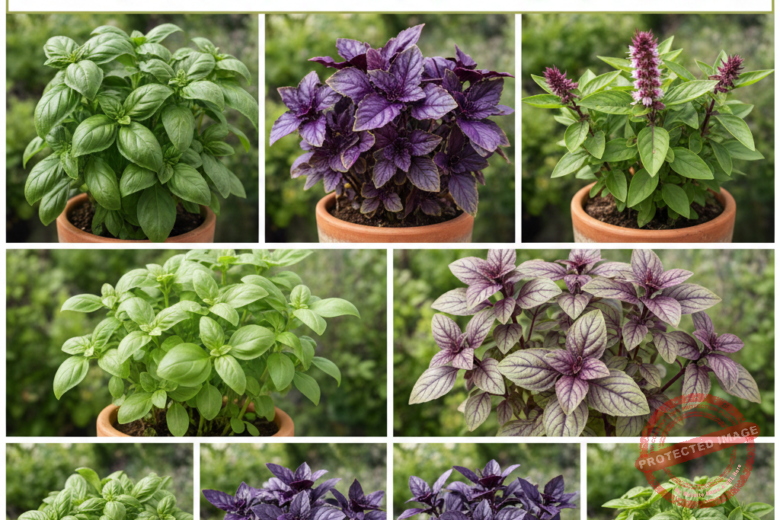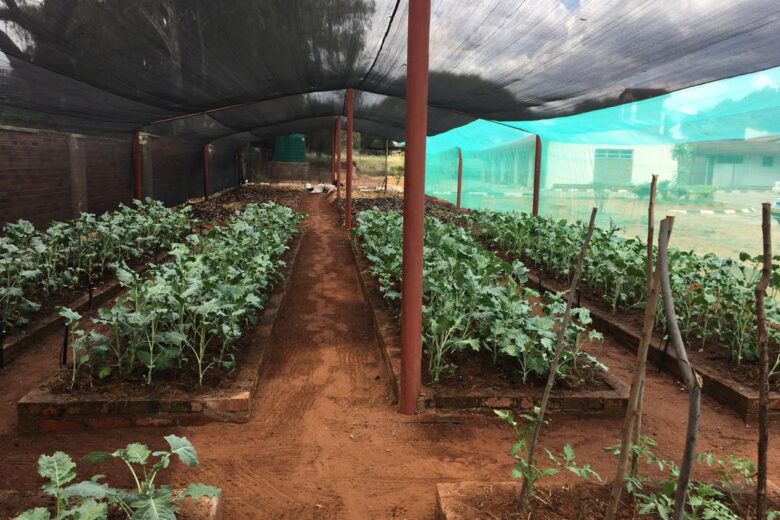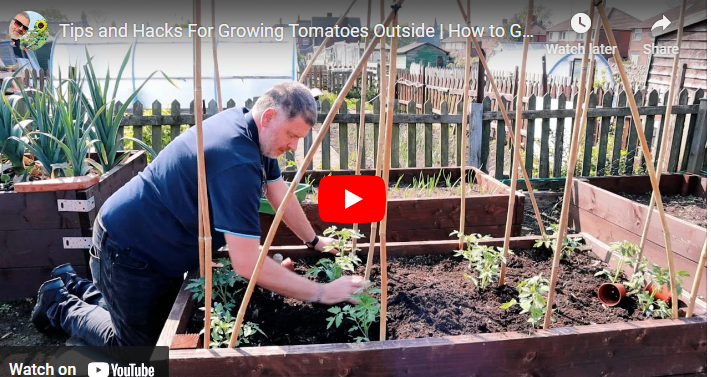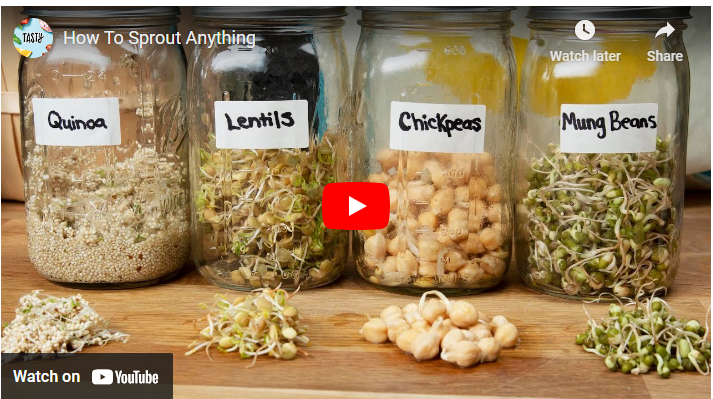Growing vegetables in Ghana can be a rewarding and enjoyable experience. It’s a great way to provide healthy and nutritious food for your family and is also a great way to save money.
Growing vegetables in Ghana requires choosing the right location, preparing the soil, planting vegetables, regular watering, fertilizing, weed control, pest control, and harvesting.
This guide will provide an overview of the steps for growing vegetables in Ghana, including information about soil preparation, pest control, and harvesting. With the right tools and knowledge, anyone can enjoy the benefits of growing their own vegetables in Ghana.
How to Grow Vegetables in Ghana
Whether you’re a beginner or a seasoned green thumb, here are some tips to get you started on your journey to growing vegetables in Ghana.
Step 1. Choose The Right Location
When choosing a location for your garden, consider the amount of sunlight it will receive and the type of soil you have. The area should get at least 6-8 hours of direct sunlight each day and is protected from strong winds.
The best soil for vegetable gardens is loose, nutrient-rich soil with a pH of 6.5-7.0. When selecting the site, also consider the amount of wind and the proximity to any sources of pollution.
Step 2. Prepare The Soil
Before planting, work the soil to a depth of 8-10 inches to ensure it is loose and free of weeds and debris. Before you till the land, make sure you amend the soil with the proper fertilizers and amendments for the type of vegetables you will be growing.
Till the soil using a tiller or garden fork, break up the soil to a depth of 12-18 inches. This will allow for better drainage and root penetration.
Furthermore, level the ground using a garden rake to level the soil and remove any large rocks, roots or other obstructions. After that, add organic matter such as compost, manure or leaf mold into the soil to help improve fertility and drainage.
Step 3. Plant Your Vegetables
When deciding on a vegetable to plant, consider the climate and the amount of space you have. Some vegetables, such as tomatoes and peppers, need warm temperatures to thrive, while others, such as carrots and potatoes, can tolerate cooler temperatures. Also, make sure to choose varieties that are suited to your area.
Plant your vegetables according to the instructions on the seed packet or starter plant tag. Position the plants so they have adequate space to grow and spread out their roots.
Step 4. Regular Watering
Vegetables need plenty of water to grow, so water your garden regularly. The amount of water needed depends on the type of plant and the weather, but it’s usually best to water deeply and less frequently. Aim to water deeply, so that the water goes down to the roots of the plants.
Step 5. Fertilizing
Most vegetables are grown in small-scale, low-input systems in which the main sources of fertility are organic matter, such as crop residues, animal manure, and compost organic waste.
Organic fertilizers are used to supplement the soil’s natural fertility. The most commonly used organic fertilizers in Ghana are poultry manure, compost, and farmyard manure.
Step 6. Weed Control
Keep weeds at bay by hand-weeding or using a hoe or shovel to remove them.
Step 7. Pest and Disease Control
Pests and diseases are major constraints to vegetable production in Ghana. The most important insect pests affecting vegetables in Ghana include aphids, thrips, whiteflies, and caterpillars. Common diseases include bacterial wilt, alternaria leaf spot, and downy mildew.
Cultural practices such as crop rotation, early sowing, and adequate spacing of plants can help reduce pest and disease problems. Also, you can use natural or chemical insecticides or fungicides to control pests and diseases.
The use of biological control agents such as predatory insects, nematodes, and fungi is also an effective way to manage pests and diseases.
Step 8. Harvesting
Harvest your vegetables when they are ripe and ready according to the instructions on the seed packet or starter plant tag.
Variety Of Such Vegetables In Ghana
Ghana has a diverse range of vegetables that are grown and consumed, including but not limited to, okra, eggplant, cabbage, lettuce, spinach, pepper, tomato, onion, and many others.
Vegetables are an essential part of the Ghanaian diet, and many different varieties are available throughout the year.
Some vegetables are grown in specific regions due to their adaptability to certain climates.
How Much Is Vegetables Sold In Ghana
The price of vegetables in Ghana varies depending on the type of vegetable, location, and season. On average, a kilogram of tomatoes may cost between 2 to 5 Ghanaian cedis while a kilogram of pepper may cost between 3 to 8 Ghanaian cedis.
The price of vegetables tends to be higher during the dry season when there is less rainfall, and crops are harder to grow.
Best Agronomic Practices To Engage In The Growing Vegetables In Ghana
The best agronomic practices for growing vegetables in Ghana include selecting suitable vegetable varieties for the region, preparing the soil adequately, proper irrigation, regular pest and disease control, and the use of organic manure or fertilizers.
It is essential to plant crops at the right time of the year and use appropriate planting methods to promote healthy growth and increase yields.
Projected Profit Of Vegetables In Ghana
The projected profit of growing vegetables in Ghana depends on many factors, including the type of vegetable, market demand, location, and season.
With proper management, vegetable farming can be a profitable venture in Ghana. For instance, a small-scale farmer growing tomatoes on half an acre of land can make a profit of approximately GHC 10,000 to GHC 15,000 per season.
Common Diseases And Pests Of Vegetables
Common pests and diseases of vegetables in Ghana include aphids, cutworms, nematodes, powdery mildew, and leaf spot.
Aphids and cutworms can be controlled using biological and chemical methods, such as applying neem oil or insecticides.
Nematodes can be controlled by crop rotation, planting resistant varieties, or using biological control agents.
Powdery mildew can be prevented by spacing plants apart to reduce humidity, removing infected plants, or using fungicides.
Leaf spot can be controlled using cultural methods, such as removing infected leaves or practicing crop rotation.
Different Propagation Methods Of Vegetables
Vegetables can be propagated using different methods, such as seeds, stem cuttings, grafting, and layering. Seeds are the most common and easiest method of propagation.
Stem cuttings involve taking a portion of a stem from a mature plant and rooting it in a suitable growing medium.
Grafting involves joining two different plant parts to form a single plant, and it is commonly used for tomatoes.
Layering involves encouraging a branch or stem to grow roots while still attached to the parent plant and is commonly used for propagating pepper plants.
Vegetables In High Demand In Ghana
Here are some of the vegetables that are in high demand in Ghana.
1. Tomatoes
Tomatoes are one of the most popular and widely consumed vegetables in Ghana. They are used in a variety of dishes, from stews and soups to salads and sauces.
2. Okra
Okra is a staple in Ghanaian cuisine, often used in soups and stews. It is also popular in vegetable dishes and can be fried, boiled, or steamed.
3. Eggplant
Eggplant is a popular vegetable in Ghana and is often used in soups and stews. It can also be grilled, roasted, or stewed.
4. Onions
Onions are another popular vegetable in Ghana and are used to add flavor to dishes. They are often cooked with tomatoes, peppers, and other vegetables.
5. Peppers
Peppers are a popular vegetable in Ghana and are used in many dishes, including sauces, stews, and salads.
6. Cassava
Cassava is a root vegetable that is widely consumed in Ghana.
Prices Of Vegetables In Ghana
Vegetable prices in Ghana vary depending on the season and the region. Generally, common vegetables such as tomatoes, onions, peppers, and cabbage are relatively inexpensive and can be found for as little as $0.50 per kilogram.
Examples Of Green Leafy Vegetables In Ghana
- Amaranth (Terete)
- African spinach (Kontomire)
- Garden eggs (Egusi)
- Sweet potato leaves (Taro)
- Pumpkin leaves (Kontomire)
- Water leaves (Toson)
- Spinach (Ete)
- Cassava leaves (Atagbe)
- Mustard greens (Kai-kai)
- Bitterleaf (Eru)
How To Start A Vegetable Farm In Ghana
1. Research
Research the best climate and soil conditions for the vegetables you would like to grow. Different vegetables require different climates and soil types, so it is important to know which vegetables you would like to farm and what their growing needs are in order to determine the best location for your farm.
2. Find A Property That Meets Your Needs.
Consider things like access to water, nearby markets, and if the property has access to electricity.
3. Obtain The Necessary Permits And Licenses.
In Ghana, you will need to obtain a business license, a farm permit, and any additional permits that may be required for the specific type of farm you will be running.
4. Purchase The Necessary Equipment.
This can range from tractors and other machinery to irrigation systems and greenhouses.
5. Plant Your Vegetables.
You can either plant directly into the soil or use raised beds. Make sure to choose the right seeds for your climate and soil.
6. Manage Pests And Diseases.
Different vegetables will require different strategies for pest and disease control, so you will need to research the best ways to manage these issues.
7. Market Your Produce.
Consider selling your vegetables at local markets or to local restaurants, or even setting up an online store.
8. Track Your Expenses And Profits.
Keeping detailed records of your expenses and profits will help you to better understand the financial performance of your farm.
Vegetable Production In Ghana Pdf
Vegetable production in Ghana plays a crucial role in providing a balanced diet for the population. It is an important source of income for many smallholder farmers and provides employment opportunities for many rural people.
The country produces a wide variety of vegetables, including tomatoes, peppers, eggplants, okra, garden eggs, onions, and cabbage. The majority of vegetable production in Ghana is produced in smallholder farms, although some commercial production is also taking place.
In recent years, the government of Ghana has implemented numerous initiatives to increase vegetable production, including the establishment of vegetable clusters, the use of improved seeds, and the provision of technical assistance to farmers.
These efforts have contributed to an increase in vegetable production and have increased the availability of fresh, nutritious vegetables for consumers. Additionally, the development of agro-processing facilities has enabled farmers to add value to their produce and generate increased profits.
Best Vegetables To Grow In Ghana
- Tomatoes
- Eggplants
- Peppers
- Okra
- Cucumbers
- Beans
- Watermelons
- Sweet Potatoes
- Cassava
- Green Onions
Farming In Ghana
Farming in Ghana is a major economic activity, making up about one third of the country’s GDP and employing more than half of its population. Ghana’s farmers produce a variety of crops, including maize, millet, sorghum, rice, plantains, yams, and cocoa.
The country has a well-developed livestock sector, with cattle, sheep, and goats being the main animals raised. Fishing is also an important source of food and income in coastal areas.
The government of Ghana has implemented a number of initiatives to promote agricultural production and rural development, including improved access to credit, extension services, and better market infrastructure.
How To Grow Gazania In Pots
Gazania is a low-maintenance flowering plant that can be grown in pots. Here are the steps to follow for successful growth:
- Choose a pot with drainage holes and fill it with good quality, well-draining potting mix.
- Plant your gazania seeds in the pot at a depth of 1-2cm, spaced about 5-10cm apart.
- Water the soil until it is damp, but not saturated.
- Place the pot in a sunny spot, ideally with at least 6 hours of direct sunlight each day.
- Feed the gazania with a balanced fertilizer once a month during the growing season.
- Deadhead the flowers after they have bloomed to encourage more blooms.
- Keep the soil evenly moist throughout the growing season.
- Bring the pot indoors during cold weather, as gazania is not frost tolerant.
Ghana Vegetable
Ghana has a wide variety of vegetables that are grown throughout the country. These include eggplant, okra, tomatoes, peppers, onions, garlic, squash, and sweet potatoes. Ghanaians also grow a variety of leafy greens, such as spinach, kale, and collard greens.
The most popular vegetable in Ghana is cassava, which is used to make cassava fufu, a staple food. Other popular vegetables in Ghana include plantains, cocoyams, and yams. Ghanaians also cultivate a variety of melons, such as watermelons, cantaloupes, and honeydews.
How To Grow Vegetables In Aquaponics
Aquaponics is a growing technique that combines aquaculture and hydroponics. This method of growing vegetables uses fish and plant life to create a self-sustaining ecosystem that recycles the water and nutrients within.
To grow vegetables in aquaponics, start by selecting a suitable location and building an aquaponic system with a fish tank, grow bed, and a sump tank. Once the system is set up, fill the fish tank with water and add the fish. Monitor the water levels, temperature, and pH to ensure the fish are healthy.
Next, add grow media such as clay pebbles or hydroton to the grow bed. Plant the seeds of the vegetables you want to grow in the grow bed and monitor the water levels, temperature, and pH to ensure the plants are healthy.
The fish waste produced in the fish tank provides nutrients for the plants in the grow bed, and the plants help clean the water for the fish. Over time, the aquaponic system will become a self-sustaining ecosystem that recycles the water and nutrients within.
Vegetables Grown In Ghana
Ghana is blessed with a wide variety of vegetables that are grown in all parts of the country. Some of the most common vegetables are tomatoes, okra, peppers, onions, cabbage, and eggplant.
Other vegetables grown in Ghana include sweet potatoes, cassava, yams, spinach, and garden eggs. All these vegetables are important sources of essential nutrients and vitamins for the Ghanaian population.
Fast-Growing Vegetables In Ghana
Fast-growing vegetables in Ghana include okra, tomatoes, peppers, onions, and cabbages. These vegetables are quick to grow and can be harvested in a matter of weeks.
Okra is a nutrient-dense vegetable that can be cooked, boiled, or fried and is used in many dishes. Tomatoes are a popular vegetable in Ghana and are used to make soups and stews. Peppers are also used as a flavor enhancer in many dishes. Onions are a staple in Ghanaian cooking and can be used in many recipes.
Conclusion
In conclusion, growing vegetables in Ghana can be an effective way to increase food security and improve nutrition. By following the appropriate practices, such as selecting varieties that are adapted to the climate and soil, providing adequate water and fertilizers, and controlling pests and diseases, vegetable farmers in Ghana can produce a good harvest.




I need basic knowledge on how to grow vegetables in a rubber bowl, even though there is space to directly grow from the land.
You can read our resources on this page on how how to grow vegetables in pots, this will defintly be of help,. here is the link to read how to grow vegetables in pot in Ghana